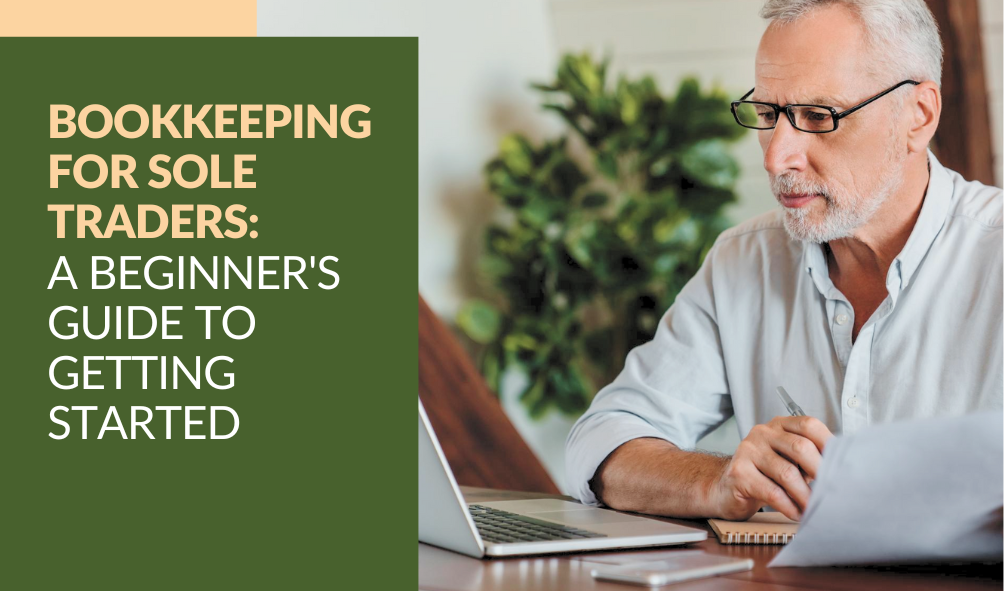
Taking the leap to become a sole trader is exciting, but when it comes to bookkeeping, it can feel like you’re navigating uncharted territory.
Good news: managing your business finances doesn’t have to be overwhelming. Here’s a practical guide to help you get started and stay organised from day one.
Open a Dedicated Business Bank Account
Separating your business and personal finances isn’t just smart—it’s essential. A business bank account simplifies record-keeping and keeps things clear for tax time.
By managing transactions through a dedicated account, you’ll avoid the confusion of mixing personal and business expenses. Plus, it ensures you have a clear picture of your cash flow, helping you set aside funds for tax obligations or reinvestment.
Choose a Bookkeeping System That Works for You
When starting out, you don’t need a complicated system. The key is to find something that fits your needs and is easy to maintain.
Options like a basic spreadsheet might work initially, but as your business grows, consider tools designed for sole traders that can handle invoicing, income tracking, and expense management all in one place. The simpler your system, the easier it is to stay on top of your finances.
Build the Habit of Recording Transactions
Falling behind on your financial records is a common pitfall for sole traders. The solution? Consistency.
Set a regular schedule—daily or weekly—to record income and expenses. Whether it’s a coffee with a client or a major equipment purchase, logging every transaction promptly ensures accuracy and saves you from scrambling to piece things together at the end of the quarter.
Understand Your Tax Obligations
It’s your responsibility as a sole trader to meet tax requirements, and the best way to do that is to stay informed and plan ahead.
Familiarise yourself with the taxes that apply to your business, such as income tax and GST (if registered). Make it a habit to set aside a portion of your earnings each month for tax payments. This approach not only prevents last-minute stress but also protects your cash flow.
Know When to Call in the Professionals
Managing your own bookkeeping is possible, but as your business grows, things can become more complex. That’s when a professional can make a world of difference.
A bookkeeper or accountant can ensure your records are accurate, help you identify tax deductions, and provide advice to optimise your finances. Think of it as an investment in your business—freeing you up to focus on what you do best.
Tips for Staying Organised
Set reminders: Use calendar alerts to stay on top of tax deadlines.
Stay consistent: Regular reviews of your financial records keep you in control.
Plan for growth: As your business evolves, adapt your bookkeeping system to suit your changing needs.
Bookkeeping doesn’t have to be intimidating. Laying the groundwork early with clear practices and consistent habits, you’ll not only simplify your finances but also set your business up for success. Start small, stay organised, and don’t hesitate to seek help when you need it.
Ready to make bookkeeping simpler?
>> Download our Bookkeeping Checklist for Small Business Owners
for a comprehensive guide to staying on top of your finances.
for a comprehensive guide to staying on top of your finances.
Disclaimer:
This blog post is intended for general informational purposes only and does not constitute professional tax advice. It's essential to consult with a registered tax agent or qualified financial advisor for personalised guidance tailored to your specific circumstances.


